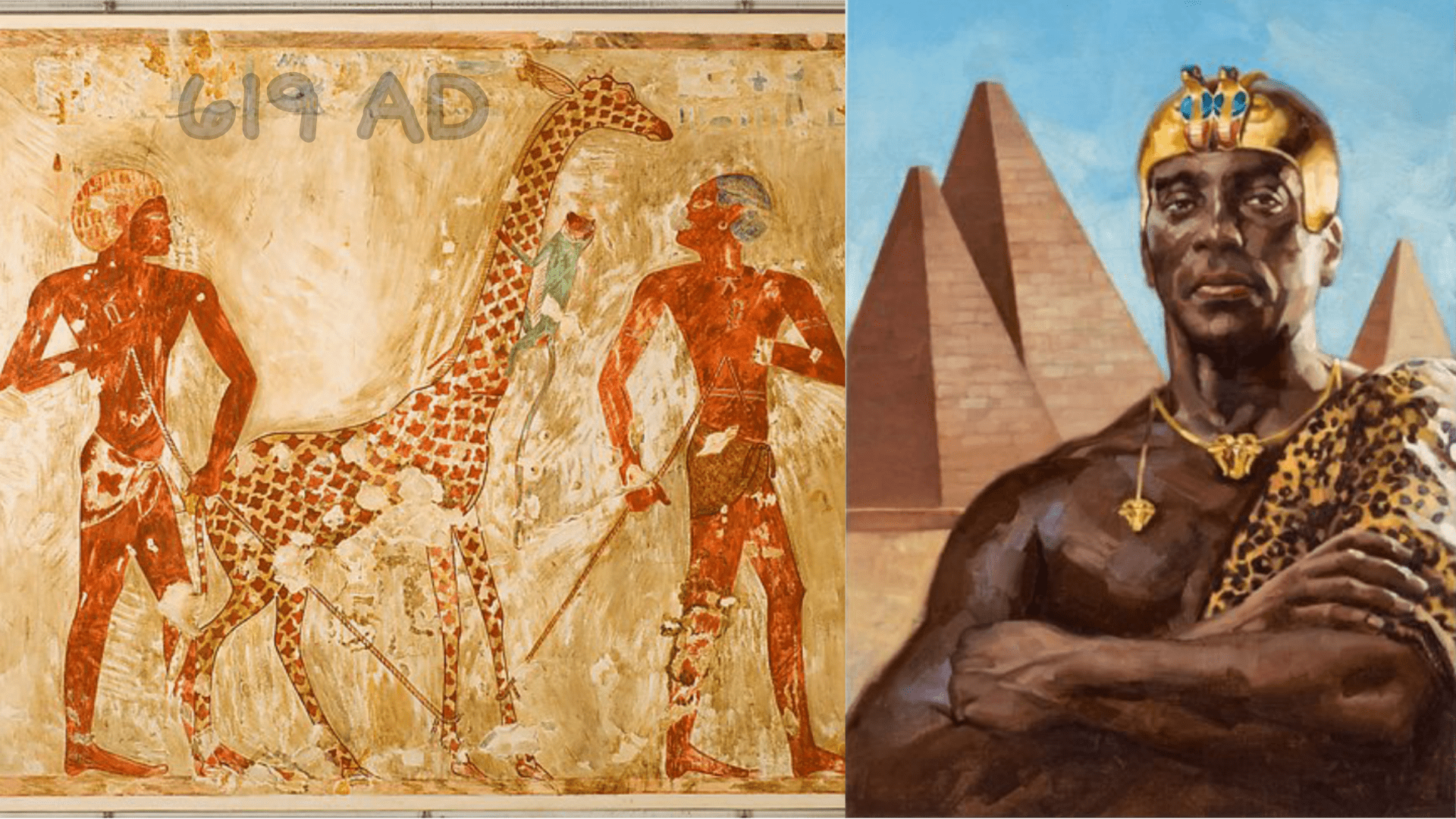African countries used to send gifts to other countries. Generally, including a giraffe. Reason still unknown to us. Nubia sent one to the Persians in 619, Ethiopia sent one to Cairo in 1209, Kanem-Borno sent one to Tunis is 1246, and Kenya sent one to China in 1414. Imagine the challenges of packing and shipping a live giraffe 1500 years ago!
Nubia is a region along the Nile river encompassing the area between the first cataract of the Nile (just south of Aswan in southern Egypt) and the confluence of the Blue and White Niles (south of Khartoum in central Sudan), or more strictly, Al Dabbah.
It was the seat of one of the earliest civilizations of ancient Africa, the Kerma culture, which lasted from around 2500 BC until its conquest by the New Kingdom of Egypt under Pharaoh Thutmose I around 1500 BC, whose heirs ruled most of Nubia for the next 400 years.
Egypt was conquered first by the Persians and named the Satrapy (Province) of Mudriya, and two centuries later by the Greeks and then the Romans. During the latter period, however, the Kushites formed the kingdom of Meroë, which was ruled by a series of legendary Candaces or Queens.
Mythically, the Candace of Meroë was able to intimidate Alexander the Great into retreat with a great army of elephants, while historical documents suggest that the Nubians defeated the Roman Emperor Augustus Caesar, resulting in a favorable peace treaty for Meroë.
The kingdom of Meroë also defeated the Persians, and later Christian Nubia defeated the invading Arab armies on three different occasions resulting in the 600 year peace treaty of Baqt, the longest lasting treaty in history.
The fall of the kingdom of Christian Nubia occurred in the early 1500s resulting in full Islamization and reunification with Egypt under the Ottoman Empire, the Muhammad Ali dynasty, and British colonial rule. After the 1956 independence of Sudan from Egypt, Nubia and the Nubian people became divided between Southern Egypt and Northern Sudan.
Nubia was home to several empires, most prominently the kingdom of Kush, which conquered Egypt in eighth-century BC during the reign of Piye and ruled the country as its 25th Dynasty (to be replaced a century later by the native Egyptian 26th Dynasty).
From the 3rd century BC to 3rd century AD, northern Nubia would be invaded and annexed to Egypt, ruled by the Greeks and Romans. This territory would be known in the Greco-Roman world as Dodekaschoinos.
Kush’s collapse in the fourth century AD was preceded by an invasion from Ethiopia’s Kingdom of Aksum and the rise of three Christian
kingdoms: Nobatia, Makuria and Alodia. Makuria and Alodia lasted for roughly a millennium. Their eventual decline started not only the partition of Nubia, which was split into the northern half conquered by the Ottomans and the southern half by the Sennar sultanate, in the sixteenth century, but also a rapid Islamization and partial Arabization of the Nubian people.
Nubia was reunited with the Khedivate of Egypt in the nineteenth century. Today, the region of Nubia is split between Egypt and Sudan.
The primarily archaeological science dealing with ancient Nubia is called Nubiology.
 The African History Truly African
The African History Truly African

